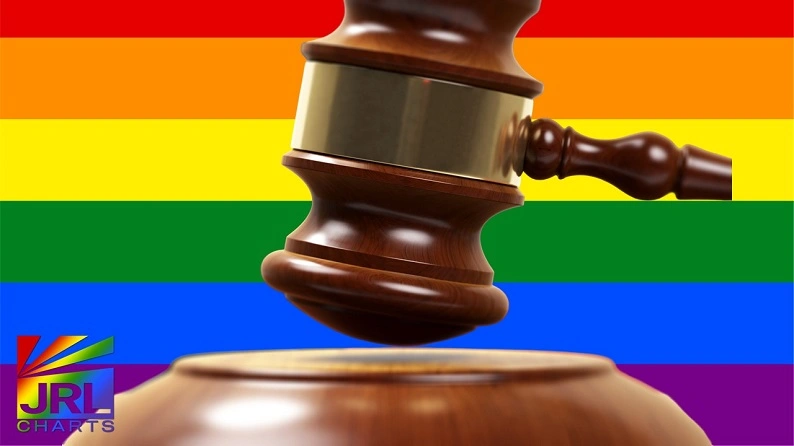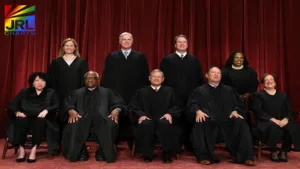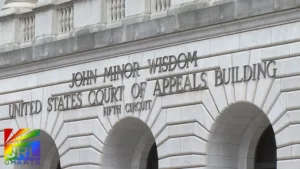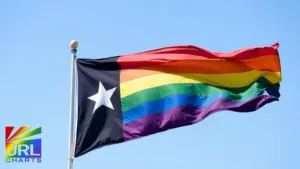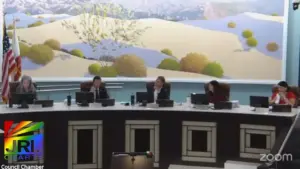By: Paul Goldberg, Senior Editor | JRL CHARTS – LGBT Politics News
AUSTIN, TX — ( November 3, 2025 ) — The Texas Supreme Court has approved a controversial shift in the state’s judicial code of conduct, allowing judges to openly refuse to perform same-sex marriages if they cite “sincerely held religious beliefs.” The ruling marks a major reversal in judicial expectations of neutrality and has ignited fierce debate across the Lone Star State.
Related Coverage Links on JRL CHARTS:
• Get the Latest in LGBT Politics USA Exclusively on JRL CHARTS
• Breaking Military News involving LGBTQ Service Members and Security
• LGBT Politics Europe – Updates on Hate Crimes, Judicial Rulings
• Stay Up to Date on the Happenings in LGBT Politics Asia
Under the newly added provision, the court clarified: “It is not a violation of these canons for a judge to publicly refrain from performing a wedding based upon a sincerely held religious belief.” In effect, a judge may now decline to officiate a wedding for LGBTQ couples without facing disciplinary action.
This rule change follows years of legal battles, most notably involving a Central Texas judge who was sanctioned after refusing to perform same-sex weddings. Conservative legal advocates argued the judge was punished for her faith, while equality advocates maintain that publicly funded officials must serve all citizens equally.
What This Means for LGBTQ Texans
Critics argue the new rule sets a dangerous precedent, carving out a path for state-sanctioned discrimination under the guise of religious liberty. LGBTQ rights groups warn that the update will embolden judges across Texas to deny equal treatment to same-sex couples — signaling a troubling shift 10 years after nationwide marriage equality was secured.
Supporters of the change claim the rule strikes a balance between a judge’s sworn duty and their right to exercise personal faith. They emphasize that judges are not obligated to perform weddings at all, and that those who choose to do so can tailor their services.
Despite the uproar, same-sex marriage remains fully legal in Texas and nationwide under the landmark U.S. Supreme Court ruling Obergefell v. Hodges. Legal scholars caution, however, that rulings like this chip away at the practical accessibility of equal marriage rights — especially in more conservative counties where LGBTQ couples already face barriers.
As the political climate continues to shift ahead of the 2026 election cycle, LGBTQ advocates are preparing for additional legal challenges to civil rights protections once thought settled.
Stay with JRL CHARTS LGBT Politics for continued coverage on LGBTQ rights, legislation, and the fight for equality across the United States.
Media Partners: For licensing inquiries, media usage rights, or republication requests, please visit our Contact Us page. All content © JRL CHARTS Media Network. Unauthorized use is strictly prohibited.
- JETT TURBO by Hot Octopuss Delivers Next-Level Male Wellness Innovation - February 16, 2026
- Major Update on LGBTQ+ Identification in America as Gallup Releases 2025 Data - February 16, 2026
- Sam Ashby’s ‘Dear Charlotte’ MV Marks Bold New Chapter - February 16, 2026
// Affiliate Disclosure: JRL CHARTS is a digital news and media platform. We do not host, stream, or sell adult content. Some outbound links may contain affiliate tracking to licensed studio-owned platforms (e.g., LatinBoyz, AEBN, BiLatin Men). These links lead to legal, age-gated distributors and are provided strictly for editorial and informational purposes only.

